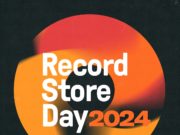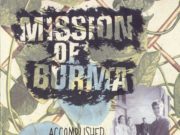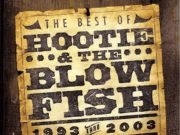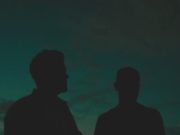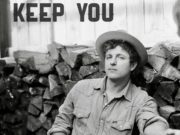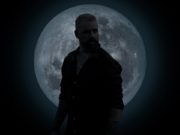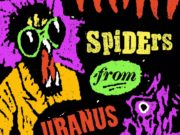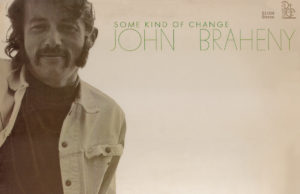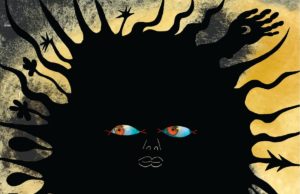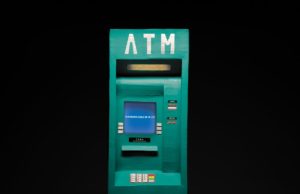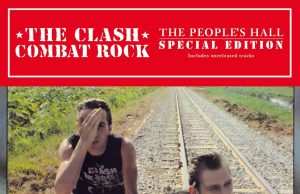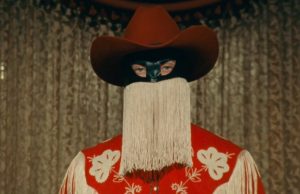Since Steve Miller’s latest retrospective Welcome to the Vault arrives Friday — and since the man hisself showed up The Tonight Show Starring Jimmy Fallon on Thursday to promote it by playing Fly Like an Eagle with The Roots (above) — it seemed like the right time to resurrect our 2010 interview. He was promoting the first of his two blues tribute albums at the time, but he was happy to talk at length about pretty much anything and everything. As a result, much of what he said had to be edited for space. I’ve put it back in here. Enjoy.
Steve Miller is back in the game — and playing by his own rules as usual. The singer-guitarist has just released Bingo!, his first new studio album in 17 years. But if you think he spent that time painstakingly crafting new material that can stand next to ’70s hits like The Joker, Jet Airliner, Rock’n Me and Take the Money and Run, think again.
“I’m 66 years old, and I don’t give a fuck about that stuff anymore,” laughs Miller from his home in Ketchum, Idaho. “I don’t even think about it. If I wrote new originals, you’d just go, ‘Ehh, not as good as Fly Like an Eagle.‘ That’s just the nature of the game. Nobody wants to hear new originals — nobody.”
Instead, he’s banking on the belief that what his fans really want to hear are blues covers. Bingo! — the first of two discs he recently cut — finds Miller applying his distinctive double-tracked space-cowboy vocals and strummy guitars to classics from Howlin’ Wolf, B.B. King and Jimmy Reed, along with newer fare from former Fabulous Thunderbirds axeman and fellow Texan Jimmie Vaughan.
While gearing up to play Bingo! on the road, the outspoken rocker talked frankly about the death of his longtime sideman Norton Buffalo, his undying love for record executives and how time kept on slippin’, slippin’, slippin’ away between CDs:
Why has it been 17 years since your last CD?
The main reason is just record companies. The last album I put out was in ’93 with Phonogram. They were just absurd to work with. It was just such a waste of time and so annoying. We were gonna do an 18-month world tour. We got to Australia. The first gig was for 80,000 people at a racetrack — and I found out they had only 3,000 CDs for sale in the entire country. I take those kind of things personally. So I grabbed the manager of Phonogram in Australia by his necktie and pulled his head down on the table and started TALKING! TO! HIM! After that, I just went, ‘I don’t need this.’ Life was good. We were selling a million records a year because of classic-rock radio. We were touring. And it was so pleasant to just remove those guys from the equation. But I’ve been recording all along. I just go in the studio, cut a bunch of stuff, pass out a few copies, forget about it and go back to the road. I did an acoustic recording. I did a bunch of jazz tracks. But this was the first serious album I had done. I didn’t know how it would turn out. But it just kept getting better and better.
How did you pick these songs?
Well, the first thing was I hired a bunch of 13 year olds and paid them $10 an hour to load my entire CD collection into my computer. That actually went on for a couple of years. Then one day, I hit the blues button. And 6,000 songs came up. I got fascinated. The next thing I knew, it was four days later and I had culled 6,000 down to about 170 songs. I had grown up with a lot of these songs. I grew up in Texas in the ’50s, before radio became homogenized. We heard a lot of blues and R&B and country music. And these songs were big hits in the late ’50s and early ’60s in Texas.
https://youtu.be/E5Wr23u0rdU
But you never had any desire to write new material?
When people my age write their own stuff, you can smell the burning brain tissue. If I started writing songs, I wouldn’t be as optimistic as I was when I was younger. They’d be songs about politics and the IRS, and who cares? Whereas this stuff is really joyous, great music. And we put as much work into each one of these as you would put into your own songs. It wasn’t like we just sat down and knocked them out. These things have been slowly simmered over a long period of time. The effort that went into the guitar playing was just as great as the effort that would go into writing lyrics. So for me, it was really a satisfying deal. And here’s the thing: When we were shopping it around, we were in New York and we went to Warner Brothers. And we were playing it for some guys there and they all stood up and said, ‘This is great! This sounds just like the Steve Miller Band. Did Steve write all those songs?’ The temptation was to go, ‘Yes I did. Glad you like them.’
You’re the president of the Jimmie Vaughan fan club on this one.
(Laughs) Please, can I have the badge? Jimmie is my favourite living blues musician. I love Stevie; he was great too. We all grew up in Dallas, we all had the same influences. We all listened to Hank Ballard and the Midnighters and Freddie King and Lightnin’ Hopkins. Those were people that were locals. Freddie King was on the local TV when I was growing up. But whereas Stevie was just this huge bundle of energy and high-speed wailing guitar, Jimmie could take those 4,000 notes and reduce them to four notes and break your fucking heart. That’s what he is, man. He’s deep as it gets. When I play with him, or when I buy his records, it just knocks me out. We do a bunch of his songs in our show. They are classic tunes, and I consider them worthy of being in this group.
Tell me about your live show these days.
We do two hours, 23 to 25 songs depending on the encores and things like that. There are 14 greatest hits that my audience feels like, if they’re going to pay $50 and drive 30 minutes and park and go through all that bullshit and give me five or six hours of their time, they really want to hear those 14 songs. That gives me nine to 10 more songs that I can slip in there. That’s the way I’ve been working all my life. It just depends how we’re working that year. Sometimes it’s a lot of acoustic tunes. About five years ago, I was on a Muddy Waters jag. Then it was Junior Wells and Buddy Guy. We always start our shows off with a bunch of hits because I want the audience to relax. I’m not there to show up an hour late and make ’em beg for The Joker for two hours. We’re there to give it to you and we want you to have a really great time and a really joyous evening of music. And that’s generally the way it works out. We have a really great audience. And audiences change over time. there was a time in the ’90s, after we did Wide River, we’d go out and we were playing big sheds, somewhere between 15,000 and 20,000 people, big outdoor summer shows. And I’d say, ‘Hey, we’re going to do a couple of new things from Wide River,’ and 5,000 people would get up and go out and buy a hot dog and they wouldn’t come back until they heard the opening strains to Fly Like an Eagle. And I thought, ‘What the hell happened to my audience? How did they get so dumb and lazy and conservative and white?’ It was amazing to watch 5,000 people go, ‘Aw hell, he’s not going to play The Joker for 30 minutes; I’m out of here.’ But it really has changed a lot since then. We’ve been playing a lot of this for the last year. I think we had seven of these songs in our set last summer. And it’s completely different. They fit right in and it moves right along and people love it.
It must be weird to go out and play without Norton (Buffalo, Miller’s longtime harmonica player, who died in 2009).
Yeah. We played together for 33 years — a lot longer than some marriages. He was such a partner. And it happened so fast. You hear people say that, but it’s true. We had just finished a 29-city tour. He wasn’t feeling good at the end. He called me the next day and told me he had brain cancer and lung cancer. And he was gone 60 days later. It was just so unexpected. And it’s heartbreaking to not have him there. But that’s what happens when you get old; people you love start dying. Life becomes kind of bittersweet. Tours and record projects become more important. You want to make the most of your time and you wish you had a couple of hundred more years, but you don’t.
In light of that, don’t you wish you’d put out more albums over the last 17 years?
Nah. I think my recording history is full and magnificent and has done quite well. And the fact that I didn’t have to go through all that BS with those record company people has been absolutely delightful.


